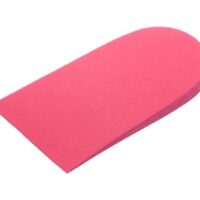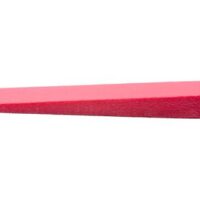Leg Pain & Conditions
Article by John Miller

Leg Pain?
Get Relief with Physiotherapy
Experiencing leg pain can significantly hinder your daily activities and overall quality of life. Whether it’s a sharp jab in the ankle, a constant throb in the calf, or a nagging ache in the knee, leg pain affects people of all ages. Luckily, physiotherapy offers a beacon of hope.
With targeted treatment strategies, physiotherapists are qualified in assessing, diagnosing, and providing focused treatments aligned with your specific goals.
Seeking professional advice from a physiotherapist not only helps in alleviating pain but also in preventing future injuries, ensuring you can enjoy life to the fullest.
Ankle Pain
Ankle pain, resulting from sprains to fractures, can significantly impact your mobility. Physiotherapy aids in enhancing stability, easing pain, and improving your range of motion. Explore more about how physiotherapy can help:
- Ankle Sprain Treatment: Strategies for rapid recovery and preventing future injuries.
- Ankle Impingement: Discussing ankle impingement signs and management.
- Ankle Fracture Recovery: Guided rehabilitation for effective healing post-fracture.
- Ankle Pain FAQs: Solutions to improve your ankle’s resilience and function.
Heel Pain
Heel pain, often stemming from plantar fasciitis or Achilles tendinopathy, can be debilitating. Discover how physiotherapy targets these issues:
- Plantar Fasciitis Treatment: Alleviating heel pain through specific interventions.
- Achilles Tendinopathy Management: Techniques to soothe Achilles heel pain and enhance flexibility.
- Heel Pain Causes and Treatments: Understanding and addressing the root of heel pain.
- Heel Spur Solutions: Effective strategies for managing heel spur discomfort.
- Sever’s Disease: Sever’s disease is a ubiquitous source of children’s heel pain. Sever’s is related to overactivity and overloading of the calcaneal growth plate.
Foot Pain
Foot pain can arise from overuse, structural issues, or specific conditions like bunions. Learn how physiotherapy can help you walk comfortably again:
- Metatarsalgia Treatment: Relieving forefoot pain through targeted physiotherapy.
- Bunion Management: Non-surgical approaches to reduce pain and improve function.
- Morton’s Neuroma Therapy: Techniques to alleviate nerve pain in your foot.
- Flat Feet Correction: Customised orthotics and exercises to support your arch.
Calf Pain
Calf pain, whether from strains or shin splints, requires precise treatment to prevent recurrence. Explore physiotherapy options:
- Calf Muscle Strain Recovery: Effective strategies for healing and strengthening your calf.
- Leg Cramps Prevention: Techniques to stop cramps before they start.
- Massage for Calf Pain Relief: Therapeutic massage to ease pain and enhance recovery.
Shin Pain
Shin pain, often a result of shin splints or stress fractures, can limit your ability to walk or run comfortably. Discover how physiotherapy can address this:
- Shin Splints Recovery: Effective techniques to alleviate shin pain and prevent its recurrence.
- Stress Fracture Rehabilitation: Guided recovery plans to ensure proper healing of shin stress fractures.
- Compartment Syndrome Solutions: Addressing the pain and pressure of compartment syndrome.
- Shin Pain Causes and Solutions: Understanding the root causes of shin pain for targeted treatment.
- Shin Pain in Runners: Shin pain in runners is often caused by sudden changes in training routines. However, it’s not exclusive to running; other high-impact sports can also lead to shin pain.
Knee Pain
Knee pain can stem from various conditions, affecting your mobility and quality of life. See how physiotherapy can help you regain your strength:
- Patellofemoral Pain Syndrome Treatment: Tailoring treatment to reduce knee pain and improve function.
- Knee Ligament Sprain Management: Strategies to support healing and strengthen your knee and ligaments.
- Meniscus Injury Recovery: Personalised exercises and therapy to recover from meniscus tears.
- Knee Arthritis Therapy: Techniques to manage arthritis pain and enhance joint mobility.
- ACL Rehabilitation: Comprehensive rehab programs for a successful return to activity post-ACL repair.
Thigh Pain
Thigh pain, whether due to muscle strains or nerve impingements, requires careful management. Learn about the role of physiotherapy in treating thigh pain:
- Quadriceps Strain Rehabilitation: Recovery plans focused on healing and strengthening the thigh.
- Thigh Muscle Contusions: Effective treatments to reduce bruising and discomfort.
Hamstring Pain
Hamstring injuries are common and can significantly affect your athletic performance and daily life. Explore how physiotherapy aids in recovery:
- Hamstring Strain Recovery: Tailored treatments to heal and strengthen your hamstrings.
- Hamstring Tendinopathy Treatment: Techniques to relieve pain and restore function in the hamstrings.
- Sciatica: Differentiating between referred sciatic nerve pain and a hamstring injury
Hip Pain
Hip pain can arise from various conditions, affecting your ability to move freely. Discover the benefits of physiotherapy for hip pain relief:
- Hip Bursitis Treatment: Easing the discomfort of bursitis with targeted interventions.
- Tendinopathy in the Hip: Customised treatments to address hip tendon pain.
- Osteoarthritis Hip Management: Strategies to manage arthritis pain and improve hip function.
- Hip Labral Tear Rehabilitation: Guided exercises and therapy to support hip labral tear recovery.
- Greater Trochanteric Pain Syndrome: Inflammation of the tissues surrounding the hip.
Groin Pain
Groin pain, often linked to muscle strains or hip conditions, requires accurate diagnosis and treatment. See how physiotherapy can assist:
- Groin Strain Recovery: Effective recovery strategies for groin muscle strains.
- Hip and Groin Pain Treatment: Addressing the interconnected nature of hip and groin pain.
- Adductor Tendinopathy: Targeted information to address the groin area and prevent future pain.
- Hip Flexor Pain: This source of groin pain is a common concern, especially among active individuals.
Sciatica
Sciatica, characterised by pain that radiates along the sciatic nerve, can be intensely painful. Learn how physiotherapy can offer relief:
- Sciatica Pain Relief: Customised exercises and manual therapy to alleviate sciatic pain.
- Lower Back Pain and Sciatica: Understanding the link between lower back issues and sciatica.
- Posture Correction for Sciatica: Improving posture to reduce sciatic nerve irritation.
- Acupuncture for Sciatica: Acupuncture & Dry Needling techniques to ease sciatic nerve pain and improve mobility.
What to Do Next
If you’re dealing with leg pain, taking the right steps towards recovery is crucial. Physiotherapy offers a path to relief and rehabilitation, tailored to your specific condition. By understanding the causes of your pain and employing targeted treatments, physiotherapists can help you regain your mobility, strength, and quality of life. Here’s what you should do next:
- Assess Your Pain: Note down the specifics of your pain—where it occurs, when it started, and what activities exacerbate it. This information will be invaluable to your physiotherapist.
- Seek Professional Advice: Don’t let pain hold you back any longer. A physiotherapist can provide a comprehensive assessment, diagnose the underlying cause of your pain, and tailor a treatment plan to your needs.
- Follow Your Treatment Plan: Adherence to your personalised treatment plan is key to successful recovery. This may include exercises, manual therapy, and other interventions.
- Stay Active and Informed: Alongside your treatment, staying active within your limits and informed about your condition will support your recovery journey.
- Schedule Regular Follow-ups: Recovery is a process. Regular follow-ups with your physiotherapist ensure your treatment plan is effective and adjusted as needed for optimal results.
Taking the first step towards addressing your leg pain is essential. Professional guidance from a physiotherapist not only ensures the right treatment approach but also empowers you with knowledge and strategies for prevention in the future. Ready to take control of your leg health?
Book Your Physiotherapy Appointment
Secure your spot now and embark on your journey to recovery with our professional and caring team.














